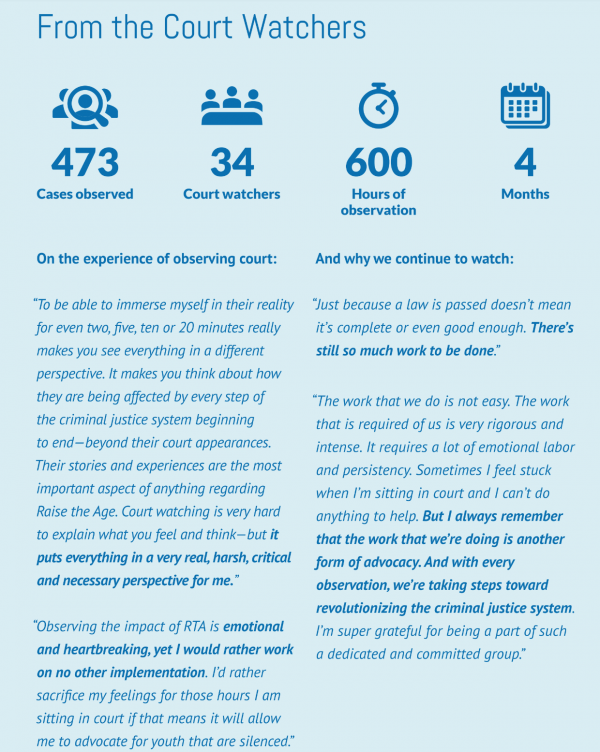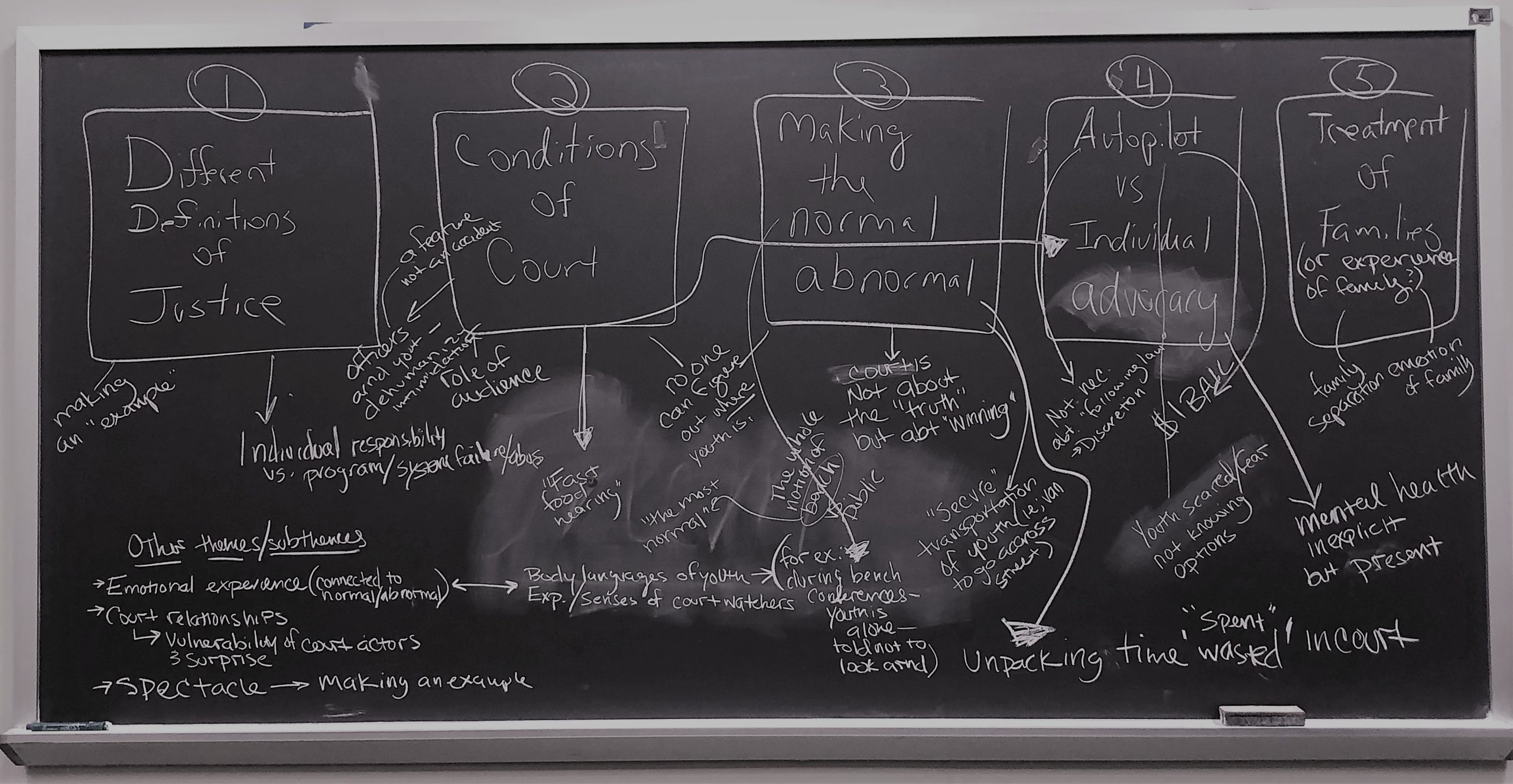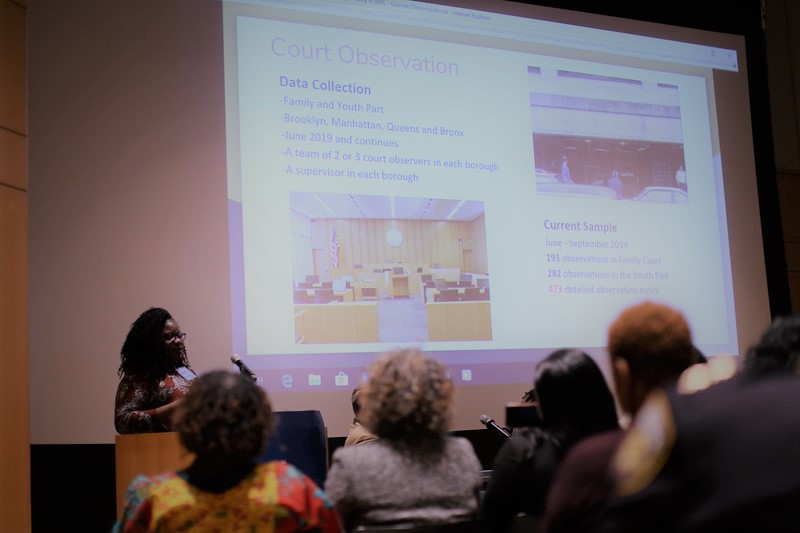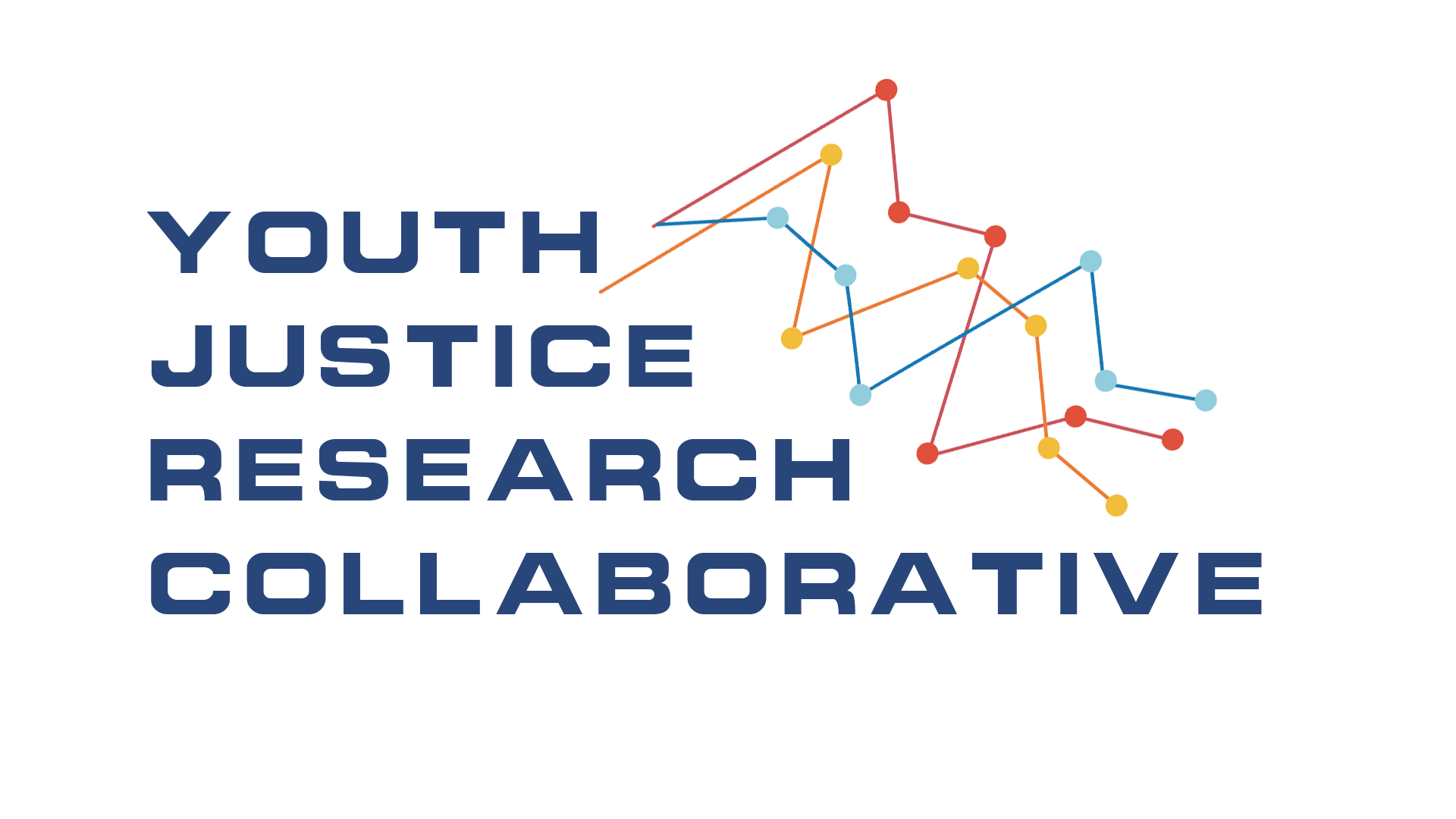
YJRC is a Participatory Action Research (PAR) project. PAR provides a critical framework for making science – systematic inquiry and analysis – a public enterprise.
Allied with feminist, critical race, queer, and indigenous theories, PAR is an approach to research rooted in the belief that valid knowledge is produced only in collaboration and in action, and that those typically “studied” should be architects of the process.
PAR positions those most intimately impacted by research as leaders in shaping research questions, framing interpretations, and designing meaningful research products and actions. PAR shifts power dynamics around who is considered an expert.
With these commitments as a foundation we are using a wide variety of data collection methods to study the implementation of the Raise the Age policy. Our methods — which include court observations, focus groups with young people directly impacted by Raise the Age, analyses of public data, and surveys of public defenders and social workers — are designed to maximize flexibility, to accommodate the exploratory nature of the project and the diverse experiences and interests of the intergenerational research team. These methods allow us to collaboratively explore a range of questions about youth experiences with Raise the Age.

Advisory Groups

We began our research by developing our research questions and methods with an advisory group of more than 40 advocates, lawyers, service providers, directly impacted youth, and families.
A group of 8 young people joined our Youth Advisory Board to inform YJRC reports, edit and disseminate the Youth Survey, and analyze survey data. We used used collaborative arts processes to build community, interpret data, and communicate findings. Below is a poem by one of our youth advisory board members.

Court Watch
 Our team has conducted 473 court observations between June 1 and September 20, 2019. Court watchers spent many hours a day, multiple times a week, across 9 months taking detailed and standardized notes of court proceedings in the new Youth Part and in Family Courts in 4 boroughs (Brooklyn, Bronx,Queens, and Manhattan). Standardized templates for observation and note taking were collaboratively produced over several months and through a number of revisions with attorneys, advocates, and young people most affected by the criminal justice system.
Our team has conducted 473 court observations between June 1 and September 20, 2019. Court watchers spent many hours a day, multiple times a week, across 9 months taking detailed and standardized notes of court proceedings in the new Youth Part and in Family Courts in 4 boroughs (Brooklyn, Bronx,Queens, and Manhattan). Standardized templates for observation and note taking were collaboratively produced over several months and through a number of revisions with attorneys, advocates, and young people most affected by the criminal justice system.
A total of 34 court observers participated in extensive training with experts in research, data collection, family and juvenile law, and policy. Court observers were trained in research methods and in the history and policy context of the Raise the Age Legislation. Court watchers also collaborated in the development of observation and standardized note taking tools.
Legal experts on our team conducted quality review procedures on all observation notes. Our team meets as a collective on a biweekly basis to discuss what has been observed in court and to collectively analyze and interpret collected data. We have started to use the data in our reports.
We collectively coded and analyzed data from the court observations identifying themes across observations.



Focus Group Workshops with Youth Who are Directly Impacted by Raise the Age
Our team collaboratively developed 2 a multi-day workshops in which we invited young people to share their experiences of the justice system and specifically their experiences under Raise the Age. Together we learned about the experiences of young people, we dreamed about abolitionist visions of decarceration and community safety, we explored the strengths and gifts that young people bring to their communities, and the the strengths and the gifts that communities bring to young people.
The workshop included some collaborative data analysis, as well as creative writing and mapping. We also gathered ideas for a youth survey that was shared broadly after the workshop.

 After the focus groups our collective used an online collaborative analysis software called Dedoose to produce an analysis of the focus group recordings.
After the focus groups our collective used an online collaborative analysis software called Dedoose to produce an analysis of the focus group recordings.
Survey with Youth
A survey was collaboratively developed with 16- and 17-year olds in detention or otherwise directly impacted by Raise the Age to better understand young people’s experiences of being prosecuted under this new legislation. Questions focused on their experiences of arrest, arraignment/intake, transfer from adult court, adjustment, court processing, and disposition including mandates and placement in incarceration, and on their visions for safety justice and accountability in their communities and broader society. We are currently working on an analysis of this data.
Survey of Public Defenders & Service Providers
 This survey was developed with public defenders who have on-the-ground expertise through multiple
This survey was developed with public defenders who have on-the-ground expertise through multiple
revisions. We included multiple stakeholders and advocates who have knowledge of the most important outcomes and areas of advocacy concerning the Raise the Age legislation in the development and analysis of the survey. Once a final draft of the survey was developed we piloted the survey with 7 public defenders who offered in-depth feedback, allowing us to hone our questions to a high level of precision.
The survey helped to document the experiences of youth, the services and mandates judges require of youth, demographic and racialized patterns, and patterns in judges’ perceptions and decision-making. It also help to identify the strengths and challenges written into the legislation, as well as area that need further advocacy, policy change, and organizing.
One our collective conducted an preliminary analysis, we conducted a virtual “stats-n-action” meeting with more than 30 public defenders and advocates.
COVID-19 hit as we were disseminating this survey. With this data collected we were able to assess the impact of COVID-19 on youth and advocate for changes in practice and policy in the moment.

Analyses of Public Data
Multiple, comparative data sets are being requested from the Division of Criminal Justice Services (DCJS). Data sets will include arrest, disposition, and demographic information and will be collected before and after implementation of the RTA legislation. This data will help us determine what happens to 16- and 17- year-olds in family court under the RTA legislation, demographic and racialized patterns in which youth get sent to family court, and in which court system (family or adult) 16- and 17-year-olds receive less harsh sentences.
We are also exploring avenues to access data from the Administration for Children’s Services (ACS), Department of Probation (DOP), and Corporation Council that will help us to better understand outcomes from youth prosecuted in the family courts. We have already begun conversations with the New York City Council about passing a data reporting bill if we are not able to obtain data sets directly from these agencies or via FOIL requests.
We have started incorporating analyses of the public data we have been able to get into our data briefs and reports and into presentations we have given. We are continuing to incorporate our analyses of publicly available data and work towards a data reporting bill.


